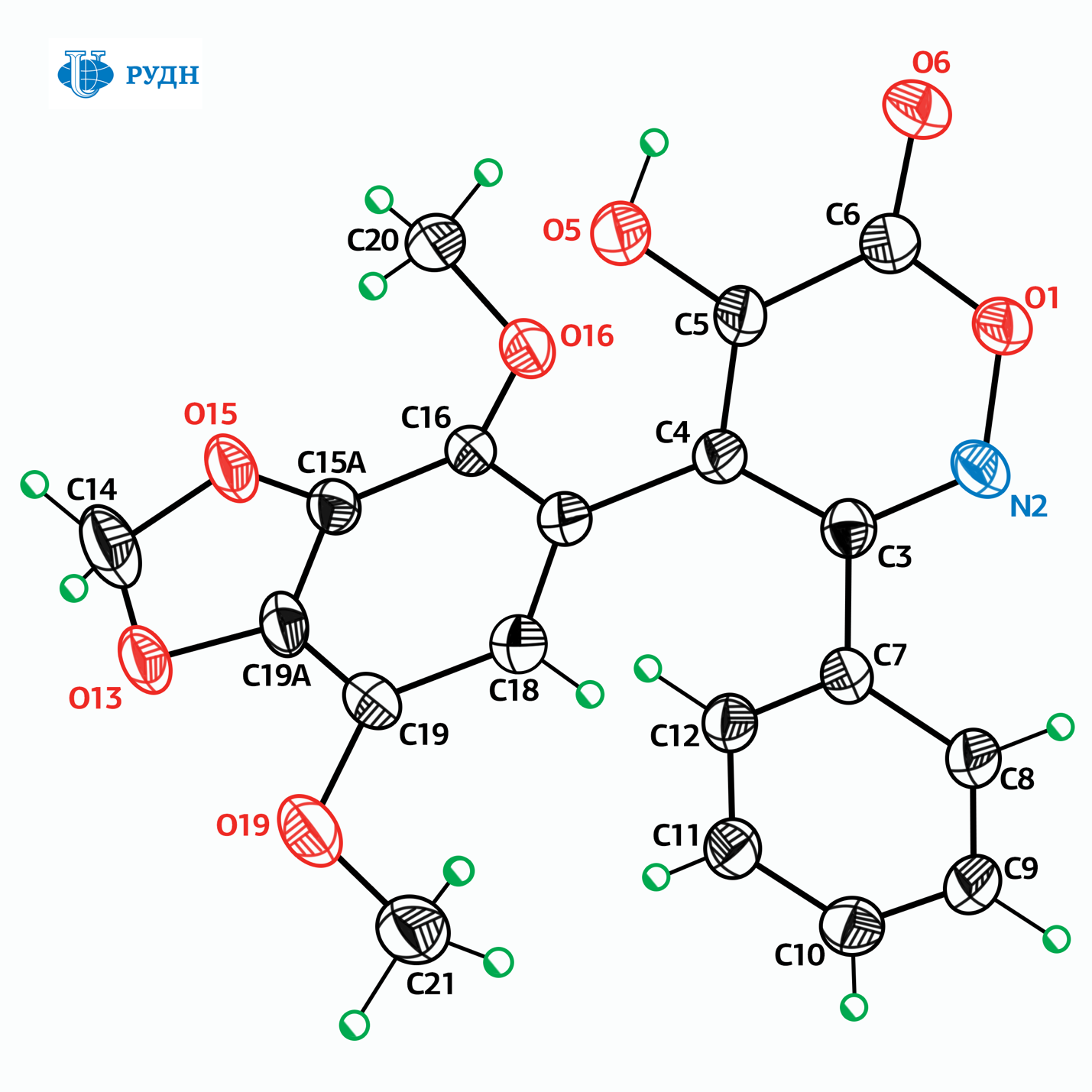Chemist from RUDN University together with colleagues from the institutes of the Russian Academy of Sciences simplified the synthesis of antitumor compounds

Many modern anti-cancer drugs are toxic, difficult to access, and/or very expensive. In addition, tumor cells can develop resistance to the drugs used. Therefore, researchers are studying the biological properties of molecules to obtain new anti-cancer drugs with optimal properties. One of the most common approaches to searching for such drugs is testing analogs of substances with already proven antitumor activity. These substances include, in particular, isoxazole derivatives that inhibit — “turn off” — the hsp90 protein necessary for the survival of tumor cells. However, compounds of this class are not readily available due to the complexity of the synthesis procedure, which requires, in particular, the complete absence of water molecules, and reagents are expensive and toxic.
Viktor Khrustalev, a chemist from RUDN University, and his colleagues have developed a method for synthesizing isomers of these substances, that is, compounds that are identical in atomic composition, but differ in the arrangement of atoms in space. As raw materials, readily available derivatives of aryl nitromethanes and chloroacetamides were used, and the reaction itself was carried out at temperatures of no more than 80 degrees at atmospheric pressure and did not require anhydrous conditions.
The resulting substances had anti-cancer activity, but unlike the prototype compounds, they do not inhibit the Hsp90 protein. Their mechanism of action is based on the destabilization of the cell division process — they prevent the formation of microtubules, which are necessary in the process of cell division.
The same mechanism of action has Taxol derivatives — one of the most commonly used antitumor agents. Based on the compounds obtained by scientists, a replacement for expensive, poorly available and highly toxic Taxol derivatives in the treatment of cancer can be created.
Article in the European Journal of Organic Chemistry.
The project to develop a cellular model of the placenta became the winner in the Scientific Materials category of the Young Scientists 3.0 competition, organized with the support of the Presidential Grants Foundation and T-Bank.
Ten scientific journals published by RUDN University have been included in the highest level of the state list of scientific publications, the White List.
Forests are not only the lungs of the planet, but also home to millions of species. However, it has remained unclear how underground interactions between trees and fungi affect forest species richness in different climatic conditions. Previous studies have yielded conflicting results: in some regions, the dominance of certain fungi reduced tree diversity, while in others it increased it.
The project to develop a cellular model of the placenta became the winner in the Scientific Materials category of the Young Scientists 3.0 competition, organized with the support of the Presidential Grants Foundation and T-Bank.
Ten scientific journals published by RUDN University have been included in the highest level of the state list of scientific publications, the White List.
Forests are not only the lungs of the planet, but also home to millions of species. However, it has remained unclear how underground interactions between trees and fungi affect forest species richness in different climatic conditions. Previous studies have yielded conflicting results: in some regions, the dominance of certain fungi reduced tree diversity, while in others it increased it.